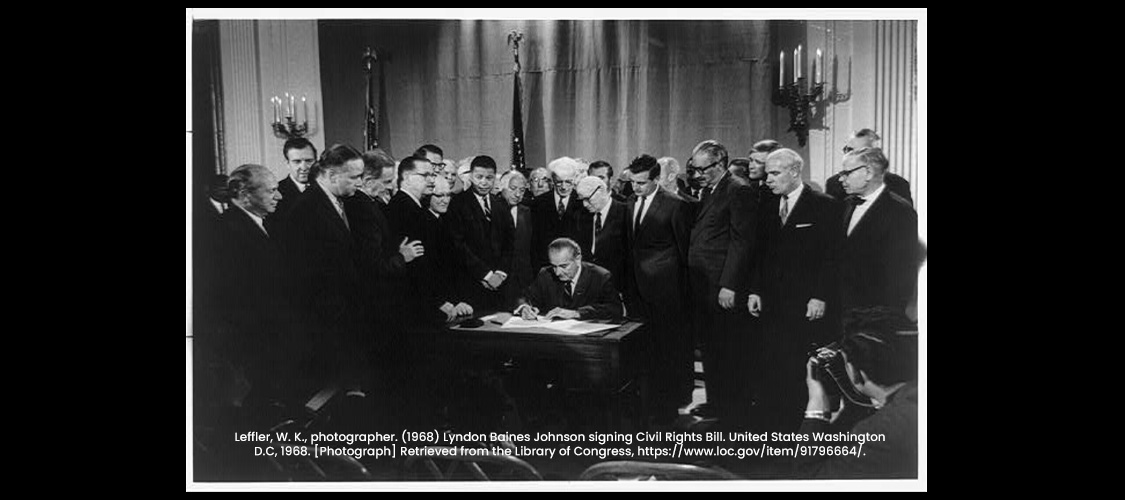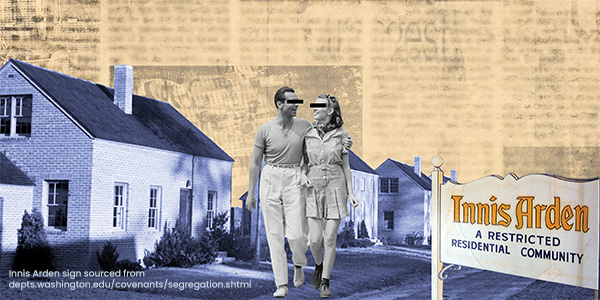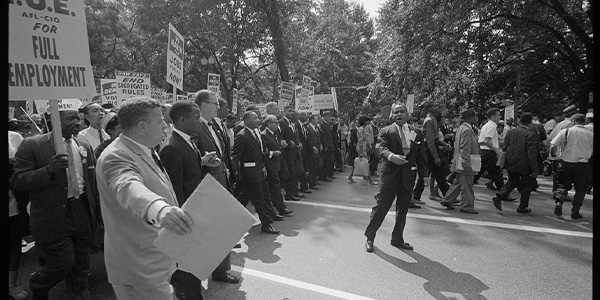Inclusive Lending
Know Your Fair Housing Rights—And What to Do If You Think They’ve Been Violated
April 9, 2025
Housing isn’t just about square footage and quartz countertops. It’s about dignity, access, and the right to come home.
And yet, every year, thousands of renters, homebuyers, and even sellers find themselves facing housing discrimination—often without even realizing it.
Enter the Fair Housing Act. Signed in 1968, this law was designed to protect Americans from housing discrimination. Every April, that law is commemorated as part of Fair Housing Month.
If you suspect you may have been a victim of housing discrimination, it’s important to know what the act covers and doesn’t cover. You should also know what to do if something doesn’t feel right when you’re looking for a home.
“A decent home is a basic right. Without it, all else fails,” said President Lyndon B. Johnson when he signed the act into effect on April 11, 1968.
What exactly is the Fair Housing Act?

The Fair Housing Act prohibits discrimination in housing based on race, color, national origin, religion.
In 1974, sex was added as a protected class. Then in 1988, disability and familial status (meaning whether you have children or are pregnant) were added. In 2021, sexual orientation and gender identity were also included under sex.
“In today’s competitive real estate market, understanding your housing rights is absolutely essential,” said Todd Luong at RE/MAX DFW Associates, serving the Dallas-Ft. Worth area in Texas.
These protections apply to most aspects of housing: renting, buying, advertising, lending, appraisals—you name it, with a few exceptions, such as 55+ communities.
What does housing discrimination look like?

You might be picturing a slammed door and a shouted slur. And yes, that happens. But more often, discrimination can be subtle.
“While the Fair Housing Act has significantly reduced housing discrimination, ongoing awareness is still necessary to ensure that discrimination doesn’t persist,” said Luong.
Here are some of the quieter ways housing discrimination can show up:
- A landlord “suddenly” pulls a listing after meeting you in person.
- A real estate agent only shows you homes in certain neighborhoods.
- A buyer is offered a higher mortgage rate than someone with the same credit score.
- A seller rejects your offer while accepting a similar one from another buyer—after hearing your name or seeing your photo.
Sometimes, discrimination is even baked into the listing language. Phrases like “no kids allowed” are often red flags under the law.
Why fair housing still matters today
A bill signed in 1968 may give the illusion that the issues it set out to tackle are ancient history. But fair housing issues are still very much alive in 2025.
The latest data from a 2023 National Fair Housing Alliance report found that more than 31,000 fair housing complaints were filed across the country. That’s up a whopping 5.74% from the previous year. And that’s likely a fraction of the actual number of cases.
Many people don’t know their rights. Others are simply too overwhelmed—or too afraid—to speak up.
And with today’s housing market as tight as it is, those gaps in access can lead to very real, very unequal outcomes. A buyer may see fewer homes, face higher mortgage rates, and even receive lower appraisals for the homes they do own.
If you’ve ever felt like the process was working against you, you’re not imagining things. But you’re also not powerless.
What to do if you think your fair housing rights have been violated

You have rights as a buyer or renter. And any form of housing discrimination should be taken seriously.
“Even if obvious discrimination is less prevalent these days, subtle forms remain and often go unnoticed by buyers and renters who may be unknowingly affected,” said Luong. “That is why understanding your rights is the first step toward preventing or addressing discrimination.”
Here is a look at what you can do if you feel you’ve been discriminated against.
Trust your instincts—and take notes. If something feels off, write it down. Keep emails, texts, names, and timestamps. Discrimination can be hard to prove, but a paper trail helps.
Ask for clarity. Was your rental application denied? You have a right to ask why—and to get the answer in writing.
File a complaint. You can submit a formal complaint with the U.S. Department of Housing and Urban Development (HUD) or call 1-800-669-9777. Local fair housing agencies and legal aid organizations can also help.
Don’t go it alone. The federal government has recently made cuts to fair housing resources. But there are nonprofits, lawyers, and housing counselors who are approved by HUD to help you. Use them.
“If you suspect housing discrimination, numerous advocacy organizations can assist you,” said Luong. “The National Fair Housing Alliance is one of the most popular resources. It offers help from filing a complaint to getting legal help.”






 Smart Moves Start Here.
Smart Moves Start Here.